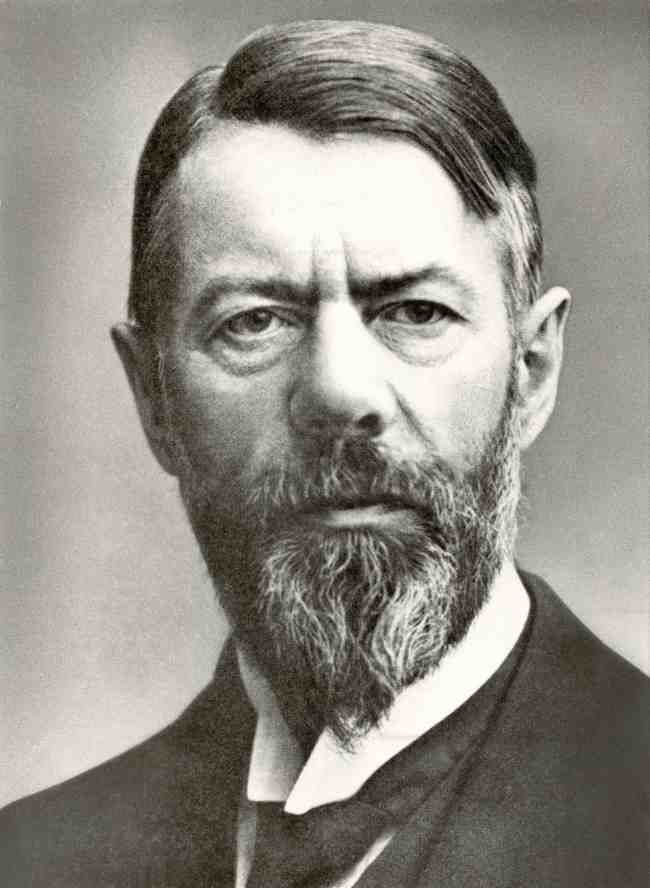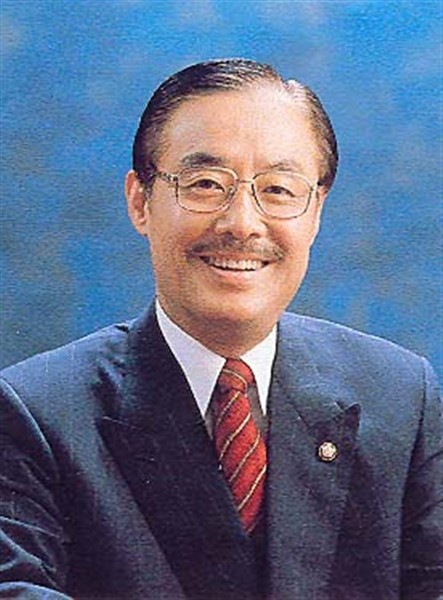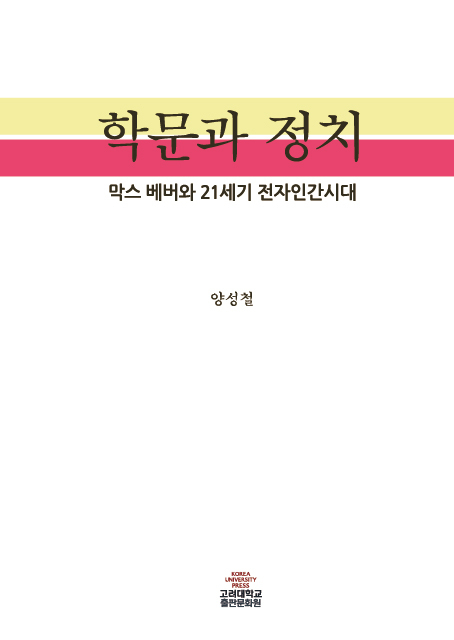Borrowing Weberian perspective to dissect North Korea, knotty world
“North Korea is a monster beyond the concepts ‘Leviathan’ termed by English political scientist Thomas Hobbes, and ‘Maschine’ termed by Weber.”
By Joel LeePublished : Jan. 11, 2018 - 17:31
Max Weber (1864-1920), a German scholar who founded sociology, wrote of his contemporary leader Otto von Bismarck: “He consumed a nation without political education. The German people, deprived of will to politics, have become prone to thinking they should merely abet politics of their ‘great leader.’ They are meek lackeys of a government machinated by him, regardless of the deeds it carries out.”
Such a statement by the mastermind of modern social science struck a chord for Yang Sung-chul, a South Korean political scientist, former politician and diplomat.
In Weber’s diatribe, Yang saw the plight of North Koreans under the feudal, totalitarian dictatorship of the Kim Jong-un regime. He also saw a reflection of today’s incomprehensively complex world, which cannot be easily deduced by any simple cause and effect, just as Weber argued of his own time.
A culmination of a career spanning journalism, academia, politics and diplomacy, Yang recently published a book translated as “Scholarship and Politics: Max Weber and the 21st-Centrury Age of Homo Electronicus.” The 750-page tome, written in Korean, is full of elucidations on current global issues, albeit pedagogic in prose.
Yang presents a voluminous interpretation of trends and zeitgeists, encompassing scholarship and politics, science and religion, political history and diplomacy, age of automation and global capitalism, reunified Germany and divided Korea, as well as Weber’s life and thoughts.
Such a statement by the mastermind of modern social science struck a chord for Yang Sung-chul, a South Korean political scientist, former politician and diplomat.
In Weber’s diatribe, Yang saw the plight of North Koreans under the feudal, totalitarian dictatorship of the Kim Jong-un regime. He also saw a reflection of today’s incomprehensively complex world, which cannot be easily deduced by any simple cause and effect, just as Weber argued of his own time.
A culmination of a career spanning journalism, academia, politics and diplomacy, Yang recently published a book translated as “Scholarship and Politics: Max Weber and the 21st-Centrury Age of Homo Electronicus.” The 750-page tome, written in Korean, is full of elucidations on current global issues, albeit pedagogic in prose.
Yang presents a voluminous interpretation of trends and zeitgeists, encompassing scholarship and politics, science and religion, political history and diplomacy, age of automation and global capitalism, reunified Germany and divided Korea, as well as Weber’s life and thoughts.

“This book started from translating Weber’s lecture notes, titled, ‘Politics as a Vocation’ and ‘Scholarship as a Vocation.’ While translating, I started coveting a desire to illuminate today’s era of ‘homo electronicus’ using his insight and foresight,” the author writes in the book’s introduction.
“Homo electronicus is a new breed of humans that ceaselessly traverse between the offline physical world and online virtual world. They increase the speed of worldwide digital connectivity as well as its scope. Moving at speed of light, they expand the breadth of communications, contact, participation, sharing, convergence and co-work, and deepen their depth.”
In today’s increasingly unknowable, tangled and messy world -- compounded by science and technology, rivalries and chest-thumping between nations, akin to Weber’s time -- the German thinker’s perspectives seem relevant, even felicitous.
Unlike Karl Marx, who saw history as a causal function of material conditions, and therefore capable of being architected by the revolutionary will of the proletariat, Weber was a cautious observer of the arc of history. He was a proponent of academic perspective “methodological antipositivism,” studying social action through interpretive, rather than empiricist, means, by understanding the purpose and meaning individuals attach to their actions.
Through his seminal book “The Protestant Ethic and the Spirit of Capitalism,” Weber proposed that ascetic Protestantism was one of the major causes of the rise of capitalism and rational-legal nation-state in the Western world. In contrast to Marx’s historical materialism, Weber underscored the importance of cultural influences embedded in religion as a means for understanding capitalism’s origins.
Regarding religion and science, Yang compares the works of evolutionary biologists Richard Dawkins and Jared Diamond.

“The two scientists’ analyses and criticisms of religion seem to be micro-focused. But considering the enormous contributions of religion in human, anthropological and civilizational history, I believe it is neither appropriate nor possible to disparage its impact,” he writes. “After all, can we imagine a world of education, architecture, art, culture and civilization without religion?”
In another major work, “Politics as a Vocation,” Weber defined the state as an entity that successfully claims “monopoly of the legitimate use of physical force within a given territory.” The German was the first to categorize power into distinct forms, which he labeled as charismatic, traditional, and rational-legal.
Using Weber’s analysis, Kim Jong-un -- who took power in 2011 as North Korea’s third-generation autocrat -- can be seen as having a combination of traditional and charismatic authorities. “North Korea is a monster beyond the concepts ‘Leviathan’ termed by English political scientist Thomas Hobbes, and ‘Maschine’ termed by Weber,” writes Yang.
As he was the South Korean ambassador to the United States from 2000-2003 under the late President Kim Dae-jung (1998-2003) -- who pursued a diplomacy of engaging with North Korea, dubbed the “Sunshine Policy” -- Yang contends that the two Koreas should strengthen dialogue for cooperation and possible integration. He also urges peacefully resolving the North Korean nuclear conundrum by freezing the program, halting nuclear and missile tests, establishing diplomatic relations among related nations and replacing the Korean War armistice agreement with a peace treaty leading to a regional peace regime -- propositions palpably easier said than done.
Yang graduated from Seoul National University with a bachelor’s degree in political science. He started his career as journalist at Hankook Ilbo, then moved to the US to study at the University of Kentucky, where he received a doctorate in political science. He taught at various universities in the United States and Korea and entered the 15th National Assembly in the 1996 elections, serving on the Foreign Affairs and Unification Committee.
By Joel Lee (joel@heraldcorp.com)









![[Kim Seong-kon] Democracy and the future of South Korea](http://res.heraldm.com/phpwas/restmb_idxmake.php?idx=644&simg=/content/image/2024/04/16/20240416050802_0.jpg&u=)







![[KH Explains] Hyundai's full hybrid edge to pay off amid slow transition to pure EVs](http://res.heraldm.com/phpwas/restmb_idxmake.php?idx=652&simg=/content/image/2024/04/18/20240418050645_0.jpg&u=20240418181020)

![[Today’s K-pop] Zico drops snippet of collaboration with Jennie](http://res.heraldm.com/phpwas/restmb_idxmake.php?idx=642&simg=/content/image/2024/04/18/20240418050702_0.jpg&u=)